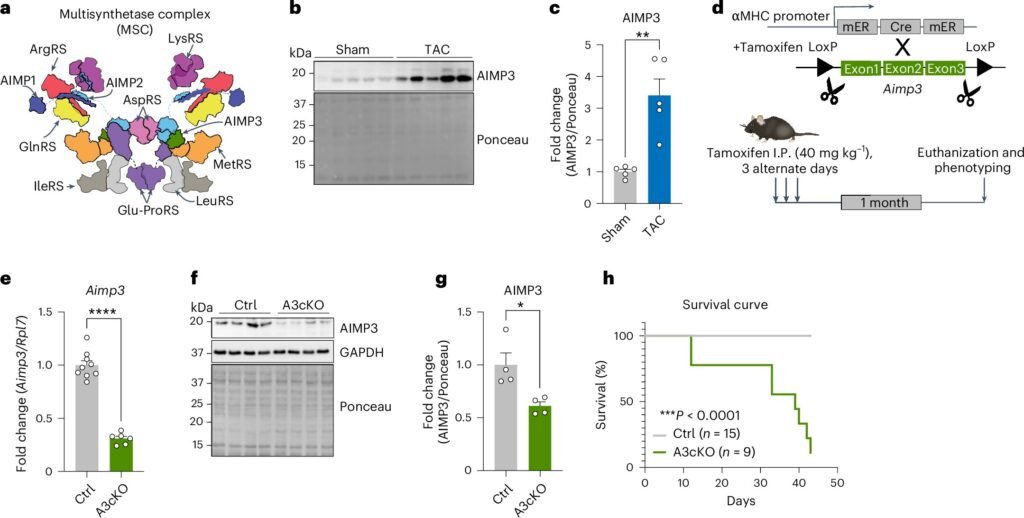New Discovery Reveals Critical Role of AIMP3 Protein in Heart Function
A recent study conducted by a team of molecular biologists at Brown University has shed light on the crucial role of a protein known as AIMP3 in heart function. This groundbreaking discovery could potentially lead to the development of new treatments for heart disease, which remains a leading cause of mortality worldwide.
Published in Nature Cardiovascular Research, the study demonstrated that the removal of AIMP3 from heart cells in mice resulted in severe heart issues, including inflammation, scarring, and ultimately fatal heart failure. According to Federica Accornero, an associate professor of biochemistry at Brown University and one of the study authors, AIMP3 is a protein that had not been previously studied in the heart and its function was unclear. However, the research revealed that cardiac AIMP3 is essential for survival.
AIMP3 is part of a larger cellular machinery responsible for protein synthesis. While the specific functions of these proteins were not well understood, it was believed that AIMP3 played a role in regulating protein production in the heart. Surprisingly, the study found that AIMP3 is crucial for preventing errors in protein synthesis, a function that could extend beyond the heart to other organs.
Using gene editing techniques, the research team led by postdoctoral research associate Anindhya S. Das discovered that AIMP3 aids another protein, MetRS, in removing a harmful substance called homocysteine. Without AIMP3, homocysteine accumulates in heart cells, leading to oxidative stress, protein aggregation, defective mitochondria, and ultimately cell death. The mice in which AIMP3 was removed from heart muscle cells exhibited severe heart issues and succumbed to heart failure.
Das emphasized the importance of these findings, noting that they highlight a novel and essential role of AIMP3 in protecting the heart. Understanding this mechanism could pave the way for new treatments targeting heart diseases associated with homocysteine accumulation. Future studies will explore whether increasing AIMP3 levels could enhance the heart’s ability to withstand stress.
Accornero underscored the significance of studying the heart, emphasizing the lack of effective strategies for repairing cardiac injuries. Maintaining the health of cardiac cells is crucial, particularly given the prevalence of cardiovascular disease globally.
In conclusion, the discovery of AIMP3’s critical role in heart function opens up new possibilities for therapeutic interventions in heart disease. By unraveling the mechanisms underlying AIMP3’s protective function, researchers hope to develop targeted treatments that could improve heart health and prevent cardiovascular complications.
For more information on this study, refer to the article published in Nature Cardiovascular Research with DOI: 10.1038/s44161-025-00670-w. This research was conducted by Brown University, a renowned institution committed to advancing scientific knowledge and innovation in the field of biology.


